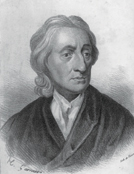How to define conservative, liberal
October 6, 2010
A few weeks ago the Iowa State Daily ran a series of columns on the definitions of various hot-button issues. Spanning everything from gay marriage to communism and President Barack Obama’s supposed role in it, these columns state that in order to have any, er, discussion of an issue, that issue must have a definition commonly accepted by both parties. Otherwise you get a bunch of people yelling about issues that they really don’t understand — like Congress does.
Speaking of Congress, and our government in general, it’s pretty well established that, as far as our bipartisan system goes, the Republicans are the conservatives and the Democrats are the liberals. It’s easy enough to understand. Just watch Fox News for some objective and unbiased analysis of the system.
But wait, what do the words conservative and liberal mean?
Well, let’s start with the easy one. Conservatism is one of those crazy political ideas developed by a bunch of Brits with too much tea and time on their hands. A chap by the name of Thomas Hobbes is considered to be one of the brilliant conservative minds.
Hobbes wrote a book called “Leviathan,” in which he outlined the purpose of government as he saw it: People are naturally free, but some have this decidedly uncivilized tendency to step on each others’ toes, doing things like stealing and murdering and lighting each other on fire for the hell of it. Other people are just not cut out for this lifestyle and decide to band together.
They develop an organization, the Leviathan, with a sovereign to help regulate, through laws, people’s actions and to help control our basic instincts. We, as subjects to the sovereign, enter into a social contract wherein we give up some excess freedoms, e.g. stabbing each other in the face for no reason, in order to preserve other, more important freedoms, e.g. not getting stabbed in the face:
“That a man be willing, when others are so too, as far forth as for peace and defense of himself he shall think it necessary, to lay down this right to all things; and be contented with so much liberty against other men, as he would allow other men against himself.”
It’s a pretty short logical leap to see why this fits the conservative, Republican platform. The goal of the Republicans is to keep the Leviathan as small as possible, to keep as many personal freedoms, while still maintaining a reasonably peaceful and orderly existence.
Okay so what about Liberalism? How do the Democrats, and all their liberal hippie nonsense, fit into it?
Another of those crazy enlightenment Brits, John Locke, is considered the father of liberalism. He’s the source of the oft-quoted defense of “life, liberty and property,” which influenced Jefferson’s writing of the Declaration of Independence. The theory is that everyone has, or should have, the right to life, basic liberties and material goods of some sort, typically earned through labor.
Locke states that people band together in order to create a society in which these could be pursued without too much unreasonable interference from; wait a minute. If I finish this sentence with the phrase “face stabbers,” this is going to be almost identical to the basics of Hobbes’ theories.
Could it be that liberalism and conservatism are actually related? That they’re not diametrically opposed and mutually exclusive? Holy revelation, Batman!
In fact, liberalism goes so far as to say that profit and social/economic status should be used as the primary incentive to keep people doing good work. This seems to be a pretty strong advocation of the free market idea.
Now, there are some differences. For example, Locke said it’s pretty much he right of people to change the government by whatever means necessary if that government is taking away your basic rights, while Hobbes is against pretty much any upset of the established order.
But both fight for small government. Both endorse personal freedoms, and both are, if you study up, for free trade. In short, the Republicans are hogging both the liberal and conservative ideas.
The commonly accepted wisdom is that the Democratic national party supports big government — lots of regulation of everything from education to the economy — and allocates these resources as needed. This has been Obama’s platform from day one, and by now most people have called this exactly what it is: socialism
So there you have it: The definitions of the major political ideologies running around in America today, and the differences between them.
So the next time you want to call someone a “liberal socialist,” do yourself a favor and don’t.







